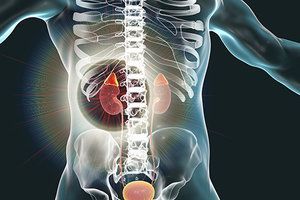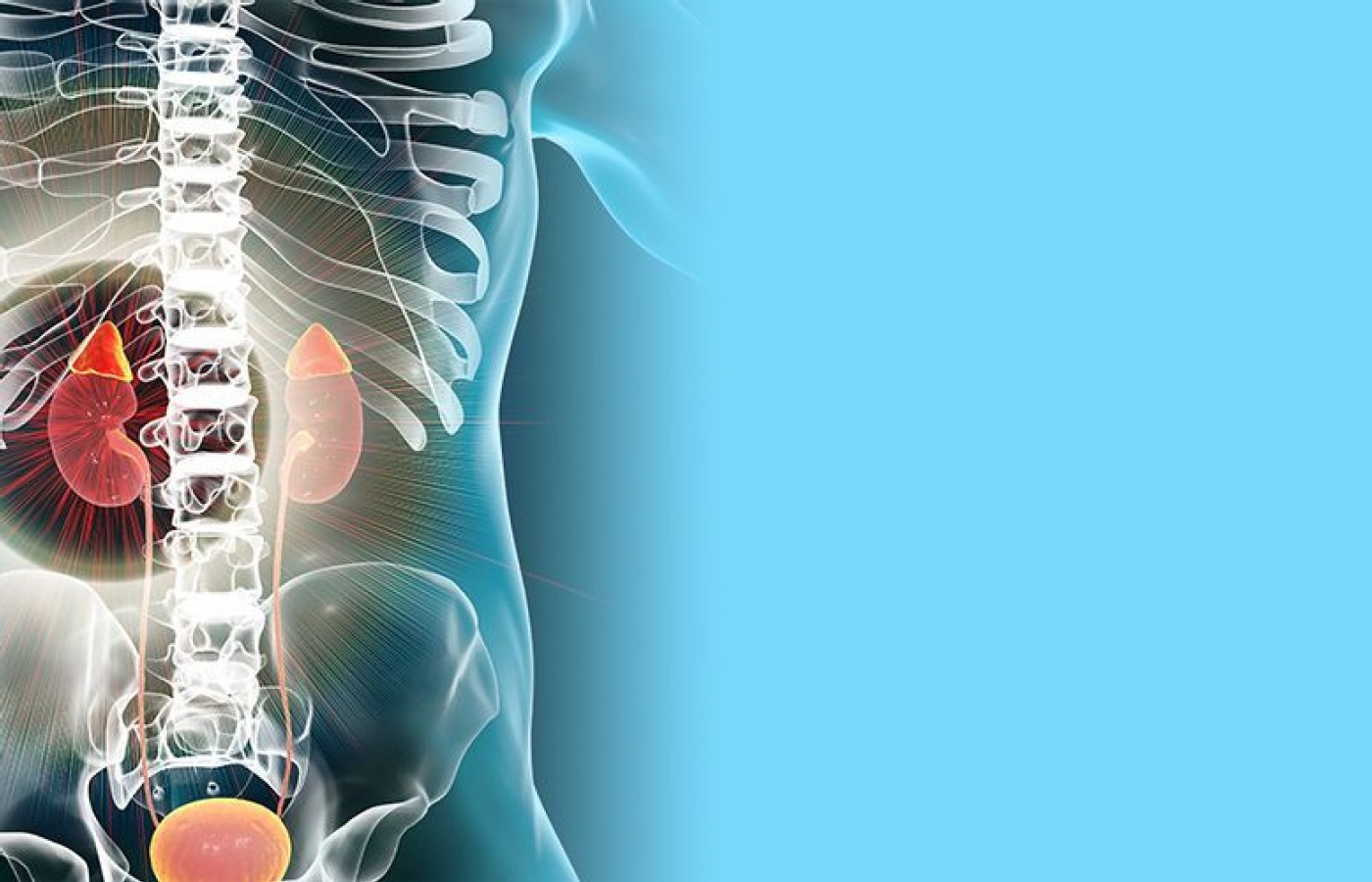The most important relationship I seek to nurture in the treatment room is the one a patient has with their own body. We live in a culture that teaches us to override pain, defer to outside authority, and push through discomfort. Patients often arrive hoping I can “fix” them, but the truth is, we can’t do the work for them. We can offer guidance, insight and support, but healing requires their full participation.
Restoring Adrenal Health & Overall Vitality During Challenging Times
This is an exhausting time for many people for many reasons, patients and practitioners alike. Unfortunately, it is the difficult times that make overall health and wellness more important than ever. But when it comes to adrenal health, your patients need your guidance.
Adrenal Burnout
If they've noticed that their responses are really outsized to even everyday stressors, or that they just feel worn out with the thought of completing basic tasks during the day, their adrenaline levels are probably on overdrive all the time. Chronic stress and being in a constant "fight or flight" state is tiring. That's due in a large part to adrenal burnout.
Adrenal burnout can have serious, long-term consequences. First, it tends to build a spiral of unhealthy avoidance behavior. It also weakens the body's defenses against cold and flu, and all upper respiratory conditions. So, it is nothing to ignore.

Fortunately, you can help. There are nutrients you can recommend to your patients that can restore their adrenal glands, energy levels and overall sense of well-being.
Vitamin C
Perhaps best known for immune support, vitamin C is also a key nutrient for the adrenal glands. That's because during stressful events, the adrenal glands store this antioxidant vitamin to protect against oxidative stress. Of course, vitamin C is water soluble, which means it needs to be replenished often. It's probable that individuals with adrenal burnout are more susceptible to viral infections because they simply don't have enough of the nutrient left in their already-stressed system to keep them healthy.1-2
Pregnenolone and DHEA
Low levels of allopregnanolone can lead to feelings of anxiety and isolation. The good news for patients is that pregnenolone, a precursor to this important neurochemical, can be easily supplemented. This, along with its positive effect on dehydroepiandrosterone (DHEA) levels, make pregnenolone an important part of a combination of HPA-supporting nutrients.3-4
Supplemental DHEA is also useful for assisting HPA-axis function. DHEA levels typically decline with age, and if a patient is already struggling with stress, supplemental DHEA can help. In a clinical trial, low-dosage DHEA appeared to improve alertness, stamina and initiative.5-8
B Vitamins
A bioactive form of vitamin B6, pyridoxal-5-phosphate (P-5-P), may be the best choice of all the forms of vitamin B6. Because it is already in this form, it doesn't require conversion in the body, which may be an issue for some of your patients. Vitamin B6 is crucial for many reasons, including metabolism and blood sugar modulation, and its role in modulating serotonin and dopamine can have very positive effects for patients who struggle with low energy.9
Another member of the B-vitamin family, pantothenic acid, is a good revitalizing ingredient to get into a patient's adrenal-restoring regimen. It will help them derive more energy from food, including metabolizing healthy dietary fats.10
Rehmannia Root
A botanical with great value for patients with adrenal insufficiency is rehmannia root (Rehmannia glutinosa), native to northern China. One of its traditional uses was for its tonic, anti-fatigue effects, and its ability to preserve mental acuity. The herb contains more than 70 compounds, including a catalpol, which according to research, has anti-depressant actions similar to fluoxetine.11-12
Other Key Supplements
Other ingredients, including licorice extract, L-tyrosine and bovine adrenal extract, help round out a proper protocol for adrenal function. These varied ingredients also support a number of related systems and concerns beyond the HPA axis, including inflammation inhibition, thyroid activity and cognitive ability under stress.13-16
Diet and Lifestyle Considerations
Lifestyle aspects, including diet, are major factors for adrenal health as well. For some patients, you may consider recommending a ketogenic diet. With its emphasis on low carbs and sugar, it is an excellent foundation for adrenal health. In fact, a review in the journal Neuroscience and Behavioral Reviews found that for reasons outside of epilepsy treatment or weight loss, a ketogenic diet may help treat mood disorders that are resistant to conventional approaches.17
A low-carb diet changes natural mind and body chemistry for the better. In addition to stopping the ups and downs of blood sugar levels, stopping carbohydrate consumption can reduce the additional physiological stress of inflammation and improve the efficiency of neural signals.
A Side Benefit: Strengthening the Immune Response
If your patients feel stressed and tired, it's a good chance that their immune resistance is suffering, too. A side benefit of restoring adrenal function, along with healthy daily energy and emotional resilience, is that your patients' immune responses could be strengthened. The ingredients I've listed here have many positive crossover actions in the body, including supporting immune defenses that are certainly drawn down when people feel exhausted.
Helping patients recover a sense of daily energy and drive relies on many factors. Diet, activity and overall mental outlook are a big parts of that. But recommending the right combination of nutrients can jump-start that process to help them feel vitality and resilience they may have been missing for years.
References
- Patak P, Willenberg HS, Bornstein SR. Vitamin C is an important cofactor for both adrenal cortex and adrenal medulla. Endocr Res, 2004;30:871-875.
- Padayatty SJ. Human adrenal glands secrete vitamin C in response to adrenocorticotrophici hormone. Am J Clin Nutr, 2007;86(1):145-9.
- Karatsoreos IN, McEwen BS. Resilience and vulnerability: a neurobiological perspective. F1000Prime Rep, 2013 May 1;5:13.
- Cacioppo S, Cacioppo JT. Why may allopregnanolone help alleviate loneliness? Med Hypotheses, 2015 Dec;85(6):947-52.
- Soucy P, Luu-The V. Conversion of pregnenolone to DHEA by human 17alpha-hydroxylase/17, 20-lyase (P450c17). Evidence that DHEA is produced from the released intermediate, 17alpha-hydroxypregnenolone. Eur J Biochem, 2000;267(11):3243-7.
- Allolio B, Arlt W, Hahner S. DHEA: why, when, and how much--DHEA replacement in adrenal insufficiency. Ann Endocrinol, 2007;68(4):268-73.
- von Mühlen D, et al. The Dehydroepiandrosterone And WellNess (DAWN) study: research design and methods. Contemp Clin Trials, 2007 Feb;28(2):153-68.
- Johannsson G, et al. Low dose dehydroepiandrosterone affects behavior in hypopituitary androgen-deficient women: a placebo-controlled trial. J Clin Endocrinol Metab, 2002;87(5):2046-52.
- Vitamin B6. In: Hendler SS, ed. PDR for Nutritional Supplements, 2nd Edition. Montvale, NJ: Physician's Desk Reference, 2008:634-644.
- Coombs G. Pantothenic Acid. In: The Vitamins: Fundamental Aspects in Nutrition and Health. San Diego, CA: Academic Press, Inc., 1992:345-356.
- Zhang RX, Li MX, Jia ZP. Rehmannia glutinosa: review of botany, chemistry and pharmacology.J Ethnopharmacol, 2008;117(2):199-214.
- Wang J, et al. Involvement of the central monoaminergic system in the antidepressant-like effect of catalpol in mice. Biosci Trends, 2014;8(5):248-252.
- Simmler C, Pauli GF, Chen SN. Phytochemistry and biological properties of glabridin. Fitoterapia, 2013;90:160-184.
- Yehuda I, et al. Glabridin, an isoflavan from licorice root, downregulates iNOS expression and activity under high-glucose stress and inflammation. Mol Nutr Food Res, 2015;59(6):1041-1052.
- Deijen JB, Orlebeke JF. Effect of tyrosine on cognitive function and blood pressure under stress. Brain Res Bull, 1994;33(3):319-23.
- Glandulars. In: Hendler SS, ed. PDR for Nutritional Supplements, 2nd Edition. Montvale, NJ: Physician's Desk Reference, 2008:264.
- Brietzke E, et al. Ketogenic diet as a metabolic therapy for mood disorders: Evidence and developments. Neurosci Biobehav Rev, 2018;94:11-16.



